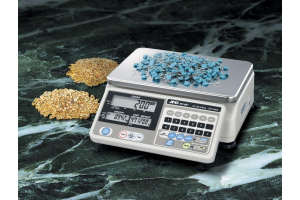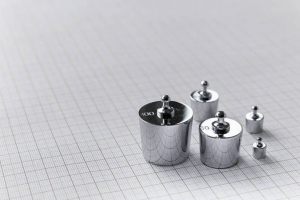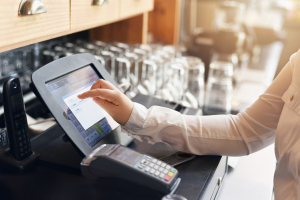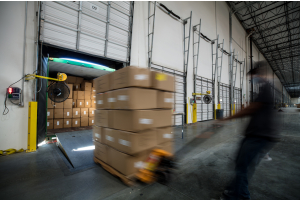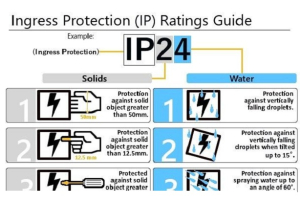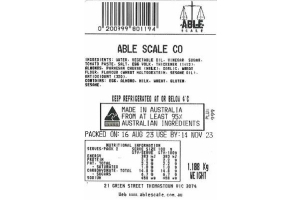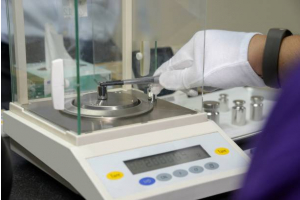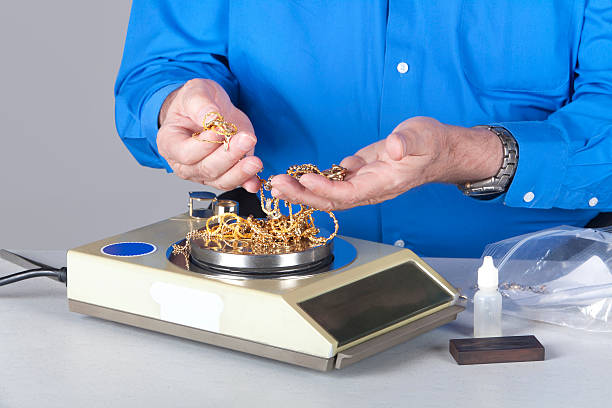
Guide to Buying a Precision Scale for Weighing Gold
If you’re in a vocation that deals with weighing gold on a professional level, or simply in the habit of assessing your valuables, here’s everything you need to know about reliable laboratory scales and ensuring that you’re across all the FYIs and FAQs of precision balances & analytical balances.
What Scales Do Jewellers Use?
While some jewellers have been known to use a variety of different weighing scales, the most common variety used in the modern age are digital precision scales - often aptly referred to as ‘gold scales’ They typically offer a higher rate of precision and accuracy, which is crucial in correctly determining a piece of gold’s worth. For this very reason, it has become requisite for commercial jewellers (and others working in the gold trade) to use trade approved gold scales when weighing their gold.
What is Legal for Trade Weighing?
In any commercial setting where goods are sold by weight, it is mandatory for weighing equipment to be certified as 'legal for trade' or 'trade approved'. The designation of 'legal for trade' indicates that the equipment has undergone a rigorous series of tests to ascertain its accuracy and suitability for its intended use. This is so people in the gold trade can be confident that the gold has been weighed precisely and accurately on any given item. As this is very much the crux of the gold trade, it means that gold weighing machines are the lifeblood of the industry, perhaps second in importance only to the gold itself!
Gold Weighing Applications
Gold weighing scales play an essential role in accurately determining the weight with the precision required for gold across the gold industry. Gold weighing devices are used across a wide range of industries, including:
Gold Bullion - Gold weighing scales contribute to consistency and standardisation in transactions involving gold bullion, particularly in determining the market value and price of gold bars and ingots.
Gold Hallmarking - In the lauded process of evaluating and certifying the purity and quality of gold jewellery or other gold items, weighing scales are used to gauge the weight of gold; that data is then used to calculate the gold content and determine its level of purity.
Gold Jewellery Production - High-resolution weighing scales are essential for precise measurements of gold and other precious metals. Gold weighing guarantees that jewellery pieces adhere to desired weight specifications, and such accuracy ensures quality control throughout the jewellery production process.
Gold Jewellery Wholesalers - Weighing scales are utilised to precisely measure the weight of gold jewellery during trade. This accurate data is vital when pricing gold jewellery, so as to determine its value on the wholesale market. This information also establishes fairness, transparency, and consistency between wholesalers and buyers across the industry.
Best Tips on Avoiding Errors While Weighing Gold
1. Keep the Balance Calibrated - It is highly advised that you regularly calibrate the balance to guarantee consistent and precise weighing of your gold. Always handle the standard weights without touching them directly with your hands. The more routinely you check your calibration, the higher your likelihood of maintaining accuracy!
2. Ensure Appropriate Environment - Make sure your weighing device is on a flat and sturdy surface, and away from any vibrations. To prevent temperature fluctuations within the weighing chamber, it’s recommended that you avoid any rooms that attract humidity, and direct exposure to sunlight. You should also avoid placing the balances near doors or windows, as the movement of opening or closing them can create air drafts that may disrupt the weighing process.
3. Handle the Weights Properly - Avoid touching the weights directly with bare hands, as hand grease can introduce errors in the readings. Instead, use clean forceps when placing samples. Place the samples carefully in the centre of the weighing pan. After using the weights, ensure they are not left outside the workbench. Instead, store them inside the designated slots of the weight box and keep the box closed to minimise environmental exposure. Refer to your device’s manual to ensure that you are handling your weights in a manner that prevents any damage or alteration in their accuracy.
4. Store the Weights in the Right Manner - Storing your weights carefully and correctly will help them maintain their accuracy and ongoing functionality. You should always adhere to the recommended procedures in the manual, but generally speaking, to preserve the integrity of the weights you may need to store them in a dry room devoid of moisture, corrosive gases, rust and dust. After usage, it is advisable to keep the weights in a desiccator to maintain their dryness.
5. Take the Right Measures to Weigh the Samples - Before recording your readings, make sure the weights have stabilised. When weighing small amounts of samples, you may wish to wear disposable gloves and head caps to prevent hair from interfering with the readings. And again, always ensure you’re following the necessary precautions outlined in your instruction manual!
The Best Precision Scales for Weighing Gold at AbleScale
The best precision scales for weighing gold will invariably deliver consistently accurate measurements while providing a user friendly interface. Meeting and exceeding that criteria is the A&D FZ-i Series, a trade approved machine scale that offers a wide range of features and capabilities that make it an ideal choice across various industries.
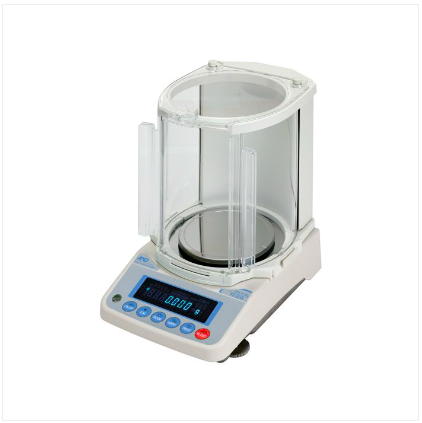
A notable feature of the FZ-i Series is its fast response time, ensuring quick and efficient weighing processes. The balances also have built-in functions such as counting, percentage weighing, and comparator modes, expanding its versatility in different applications. The FZ-i series balances offer high resolution and precision, allowing for precise weighing of small samples. They come with a large weighing pan, providing ample space for weighing different items. The balances have a user-friendly interface and a clear LCD display for easy reading of measurement results. This FZ-i model offers connectivity options such as USB and RS-232 interfaces, enabling data transfer and integration with external devices or systems. It is also equipped with internal calibration options, ensuring consistent and reliable performance.
Another terrific option is the trade approved Ohaus Adventurer AX.
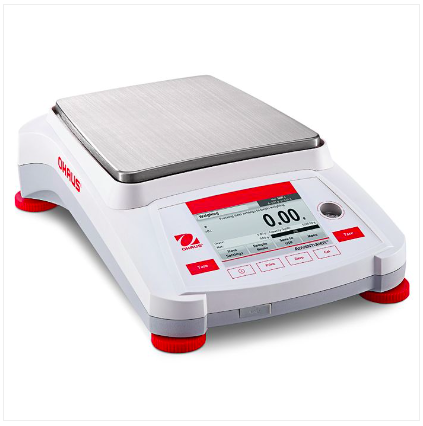
This is a truly magnificent machine that combines ever-reliable precision with a smooth user interface, which permits easy navigation and operation while accessing various functions and settings. In addition to this, it has top of the line features, including a full colour graphic touch screen, USB and RS232 ports, auto calibration or external calibration models, fast stabilisation, multiple weighing modes and a real time clock. The Adventurer AX is equipped with advanced weighing functions such as dynamic weighing, which allows for weighing of unstable or moving objects, and comes packing a wide weighing range that can handle various capacities. It even packs built-in applications for percent weighing, density determination, and more, truly marking it as a high-end gold-weighing machine that is as dependable as it is versatile.
FAQs
Why is it important to use a precision scale to weigh gold?
Using a precision scale to weigh gold is crucial as even slight deviations in weight can have a considerable impact on the gold's value. A precision scale can precisely measure the weight of gold and ensure that it is evaluated accurately.
What is the accuracy level of a precision scale when weighing gold?
The accuracy level of a precision scale entirely depends on the make and model of your precision scale. It is recommended that you use a scale with an accuracy of at least 0.01 grams.
What unit of measurement is used to weigh gold on a precision scale?
Gold is typically weighed in troy ounces, although grams are becoming increasingly prevalent in areas of the world that have adopted the metric system.
How do I calibrate my precision scale for weighing gold?
With most scales, calibration involves placing weights of known values on the scale and adjusting it until it reads the correct weight; but when calibrating a precision scale for weighing gold (or any other item), it is always advised that you refer to the manufacturer's instructions. It is generally recommended that you regularly check, and if required, calibrate your scales on a routine basis so as to ensure accurate weighing.
Can I weigh gold nuggets and gold dust using a precision scale?
The short answer is yes, you can usually weigh anything your heart desires! The “however” answer is that you need to ensure that your scales are up to the task. If you wish to weigh gold dust, you will always need to check that your scale is suitable for accurately weighing something that’s as slight as that, and also check that your scales are equipped with an appropriate resolution to detect small variations in weight.
You can head over to AbleScale website to check out our full and extensive range of scales and other equipment. Did you have a question that we didn’t cover above? You can get in touch with AbleScale directly here. Easy!
Have questions about our products and services?
We are here to help. Please fill in our online enquiry form below, and we will respond to you within the next business day.



 Call us Today
Call us Today
